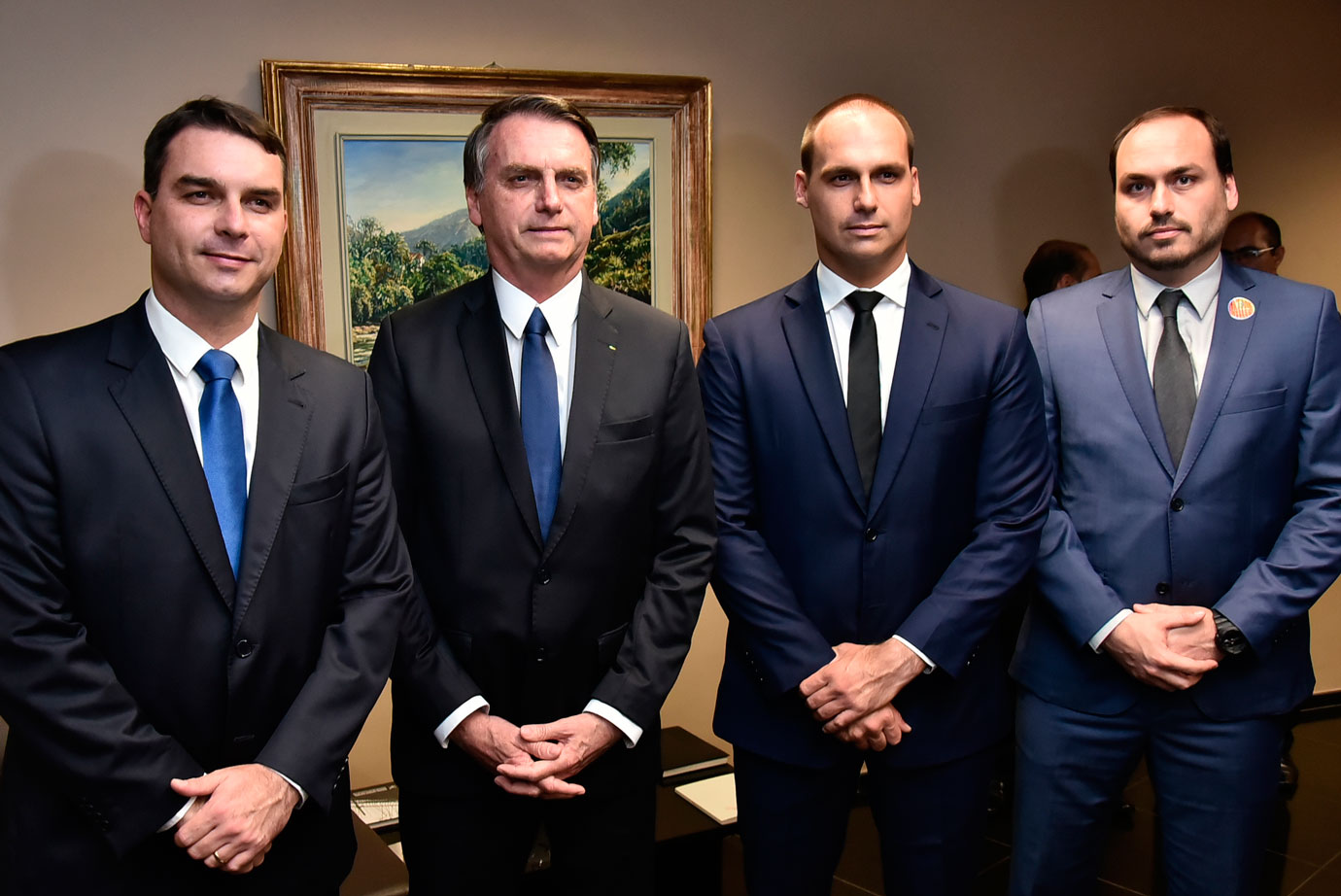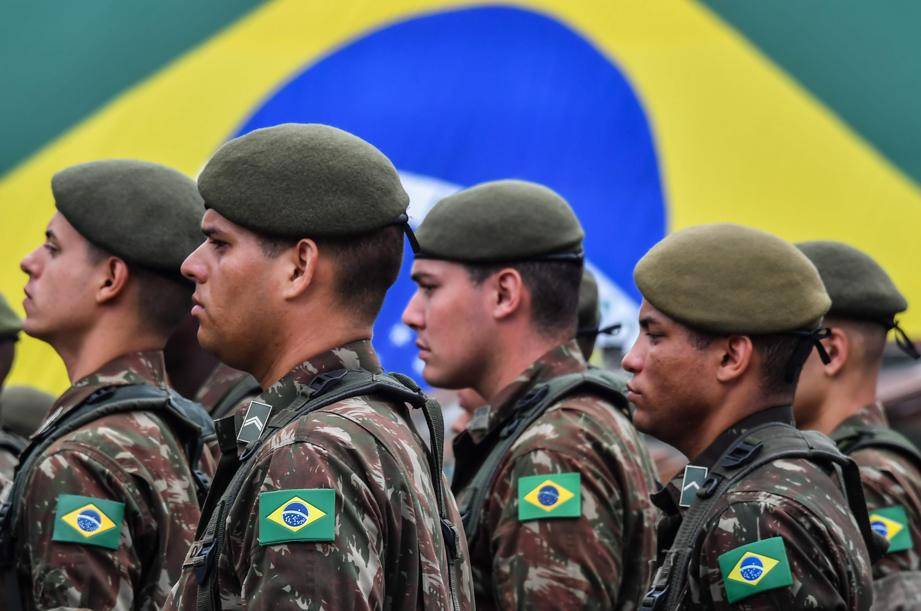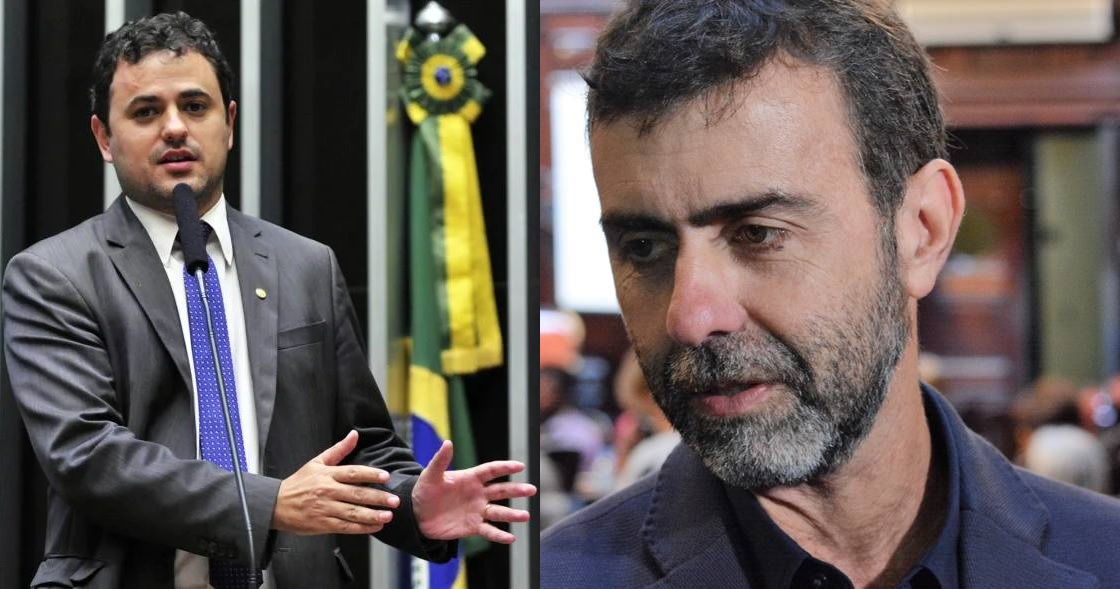RIO DE JANEIRO, BRAZIL – That the Bolsonaro clan flirts with authoritarianism is beyond doubt. But if he were to decide to close either of the other two branches of the Republic, as Deputy Eduardo Bolsonaro, his #3 son suggested, President Jair Bolsonaro would have to drive the truck himself: “Corporals and soldiers are angry with the president and with officials,” said Marcelo Machado, president of the National Association of Brazilian Military (ANMB), in an interview.

The ongoing rebellion of soldiers and ranked officers was sparked by the government’s bill passed in Congress last week that restructures military careers and pensions – and privileges high-ranking officers at the expense of the lower-ranking ones. Soldiers, corporals, sergeants, and sub-lieutenants represent 82 percent of the personnel of 325,000 active soldiers in the Armed Forces and the same percentage of the 700,000 veterans and pensioners. They voted en masse for candidate Jair Bolsonaro in 2018, but now, repentant, they call the bill “Bill (PL) of treason” and announce, unreservedly, that political relations with the Bolsonaro family are definitively severed.
“The president is only in politics for having advocated for better salaries for corporals and sergeants, while still a captain. Since he went to the reserve, soldiers have always voted for him and the Bolsonaro family. Now he has fatally backstabbed soldiers,” compares Machado, who sees no chance of supporting the Bolsonaro clan again. “The categories that represent the military bases are disappointed. It’s like a dishwasher that breaks. There is no repair,” he says.
In the clashes that moved the Special Committee of the Chamber of Deputies for eight months, where the controversial bill was finally passed, the families of soldiers were unable to secure the support of deputies linked to the government, which determined that the matter, without going through the plenary, was sent directly to the Senate.
The text was fully passed in the Committee on Foreign Relations and National Defense of the Senate last Tuesday and symbolically on Wednesday, December 4th, by the plenary, in a session that lasted less than half an hour. If enacted by President Jair Bolsonaro, military officers will now have to remain active for 35 years to retire – five more than the previous rules – among other changes. The disparity in salary readjustments until 2022, however, was what sparked the greatest unrest among soldiers: the law provides for a 45 percent increase in the salaries of higher-ranking officers and only a four percent increase for low-ranking careers.
Two perquisites, that of availability and qualification, which will be incorporated into the paycheck, are raised by 32 and 73 percent for officers, while for lower-ranking officers it is only five and 12 percent. Military personnel – including state military police officers and firefighters – will go into reserve status with their salaries and adjustments to their working lives.
They are now entitled to other benefits, such as representation allowances, transportation, and subsistence allowances. The law creates the alternative of career development to improve remuneration through studies, but only for those in active duty. The government expects a surplus of R$2.29 billion (US$573 million) by 2022 and R$10.45 billion in ten years. The savings would be R$97.3 billion, but the new career plan consumed R$86.85 billion, much more flexible than the Welfare reform for civil retirees.
Two virtually solitary voices in the debates in the Chamber, deputies Marcelo Freixo and Glauber Braga, both from the PSOL of Rio de Janeiro, in spite of criticism from left-wing peers, assumed the defense of soldiers as a worker’s cause. Although defeated in the Special Committee, they broke the reciprocal historical prejudice between the left-wing and the military at a time of political division.
“As incredible as it may seem, we received support from two left-wing deputies”, acknowledges Marcelo Machado. The leader of the soldiers says that the debate on Bill 1,645 triggered a reaction that the government was not expecting. In the debates in the Special Committee and through social media, military women from the reserve headed an opposition motion to the government and the military leadership, accused of turning their backs on the lower ranks.
In one of the many posts published on Facebook criticizing the president, the word “mito”(legend), highlighted in bold vertically, serves to stamp Bolsonaro, on the horizontal line, as “a liar, unjust, traitor and omissive”. On his page, the president of the ANMB posted the famous article by the then Army captain to Veja magazine in 1973 (“Salaries are low”), in which Bolsonaro advocates for corporals and sergeants, to demonstrate how much he changed when he came to power. “His current stance is surprising,” Machado wrote, blaming the president for the project’s consequences in the barracks.

The leader said he heard from government sources and active officers asking him to restrain the rush among soldiers to prevent division in the Armed Forces. Machado replied that the factors that could result in the division of the military, with consequences that are still unpredictable, is Bolsonaro’s change of attitude towards the troops. The Ministry of Defense even published an official note on social media alerting that military personnel are prohibited from meeting in associations, which was viewed by officials as a threat of persecution.
Senator Izalci Lucas, vice-leader of the government, noted potential damage. He conceded that the text is distorted and, as it stands, is unfair to low-ranking categories, but ended up being convinced by the government’s economic area that it would not be possible to change the project now. He also agrees that Bolsonaro has changed his position.
“As a deputy, he voted against all the reforms. Now it’s the real world. He’s in the executive branch,” he said in an interview. Under pressure from the economic sector, Bolsonaro wants to endorse the project by the end of the year. According to Izalci, a commission to be created in January will discuss a package of measures with the government to correct the distortions by means of a decree or a new bill. This is viewed with skepticism by the low-ranking military, since the changes could be made in Bill 1,645 itself by means of amendments that were, however, rejected by government supporters.
Machado voted for Bolsonaro but recalls that far from the hierarchy and discipline of the barracks, corporals and sergeants have historical positions unrelated to the right-wing. “We have always been on the left-wing. Just look at the origins of the political events that took place during the coup in 1964. The sergeants’ revolt, in 1963, in Brasília, was the first of the events that triggered the movement,” recalls the president of ANMB.
Machado refers to the rebellion that broke out in the early hours of September 12th, 1963, in Brasília, in reaction to the Federal Supreme Court’s (STF) decision, rendering the Navy and Air Force graduates who had contested (and won) legislative elections ineligible for election. The movement was stifled on the same day by the Army, with the arrest of the insurgents, but several leaders would swell the ranks of the left, some of them entering the armed struggle.
The change in the behavior of soldiers does not imply, at least for the time being, a break in hierarchy and discipline, but it does cast doubt on Bolsonaro’s implied power over the Armed Forces. The demonstrations by the president, his sons, ministers, and supporters of extreme right-wing groups – the subject of this time is the desire to re-edit the AI-5 – also seem to have no resonance in the barracks.
Institutional rupture
“Bolsonaro bets on institutional rupture”, says retired Aeronautics colonel and former fighter pilot Mauro Rogério, who chairs the Brazil Future Movement (MBF), an organization that connects the reserve’s military to liberal professionals from the center of Rio de Janeiro. Linked to the PTB and a student of military issues, Rogério believes that, if he had support, the president would not hesitate to strike a blow.
“He doesn’t give the signal because he wouldn’t have the support of the sectors that exert influence in the Armed Forces and have a strong commitment to the Constitution and democracy,” Rogério says. According to him, there is zero chance of support in the Armed Forces for an eventual attempt at an authoritarian adventure.
The Colonel says that although he has filled one-third of the top jobs with high-ranking officials, Bolsonaro is not perceived in the barracks as a leader and does not exert the influence of common sense on the troops. “Bolsonaro has not finished his military career, so he is not a reference. But he was the only politician to embrace the 1964 movement and defend the regime for the past 30 years. The military leadership viewed this posture with affection and absorbed it. But that doesn’t mean agreeing to measures outside the Constitution,” the colonel says.

According to Mauro Rogério, the successive threats of adopting exceptional measures are part of the game that Bolsonaro and his milieu strategically operate, as a method of generating tension in politics. Those who know how the powers work and the military spirit, according to him, are not afraid of radical rhetoric.
“The fist on the table amazes civilians. But there is still a lot of democratic fat to be burned and a line that cannot be crossed,” he says, warning that, in a possible attempt at an authoritarian turn, Bolsonaro would be placed at a crossroads.
“Tanks don’t have reverse gear”, says the officer, who believes that, in a very remote chance of intervention, the government would collapse and new elections would be called, as determined by the Constitution.
The PSOL and the low-ranking military
While the Bolsonarians were involved in an internal war over PSL command and the creation of a new party, the PSOL opened its arms to the lower ranks of the Armed Forces. The defeat in the Special Committee had a hint of victory when the leaders of the organizations reacted with cries of “betrayal” against Bolsonaro.
“We joined because the cause was fair. The soldiers were not even called to discuss. The project dealt with the officers and ignored who is at the base of the military pyramid and was not even called to take part in the discussions. If there is division in the Armed Forces or breakdown of hierarchy, it is the Government’s responsibility,” said deputy Glauber Braga.
“We have been criticized by colleagues from the left-wing, but we have taken the right side and broken a historical prejudice resulting from a 21-year dictatorship. Grunts and noncoms deserve the same defense as civilian workers,” said Congressman Marcelo Freixo, in an internet broadcast.
Glauber Braga was more pragmatic, stating that it was necessary to dispute one of the most important bases of Bolsonarism. “We also joined the struggle for justice. The military were harmed by the government,” said Glauber Braga. He took part in the failed mobilization in the Senate to try to correct the text.
“What we want is help,” said Corporal Marcelo Machado. Last week, he was open to dialogue with former President Luiz Inácio Lula da Silva, who was released from prison saying that he wants to talk to the military. “We were in infinitely better financial conditions during the Lula administration. He was the only one who provided any readjustment”, acknowledges the corporal. “Today’s soldiers have a higher level of education, stronger political awareness and, despite the strong indoctrination imposed within the barracks, a greater affinity with the leftist agendas,” he said.
Glauber Braga believes that by moving further away from the institutional security forces, the tendency of Bolsonarism is to dispute a social base deploying militiamen and other paramilitary groups.
According to the deputy, this path is implicit in the initiative of Olavo de Carvalho, guru of the Bolsonaro family, who has given free courses to police and military (inactive and active), with the purpose of supporting Bolsonarism, according to Braga. He says that the persistence with which the right-wing advocates extreme measures, suggests an essay of authoritarianism. “Bolsonaro is testing [surfaces) to see what can stick,” he says.
Source: El País

